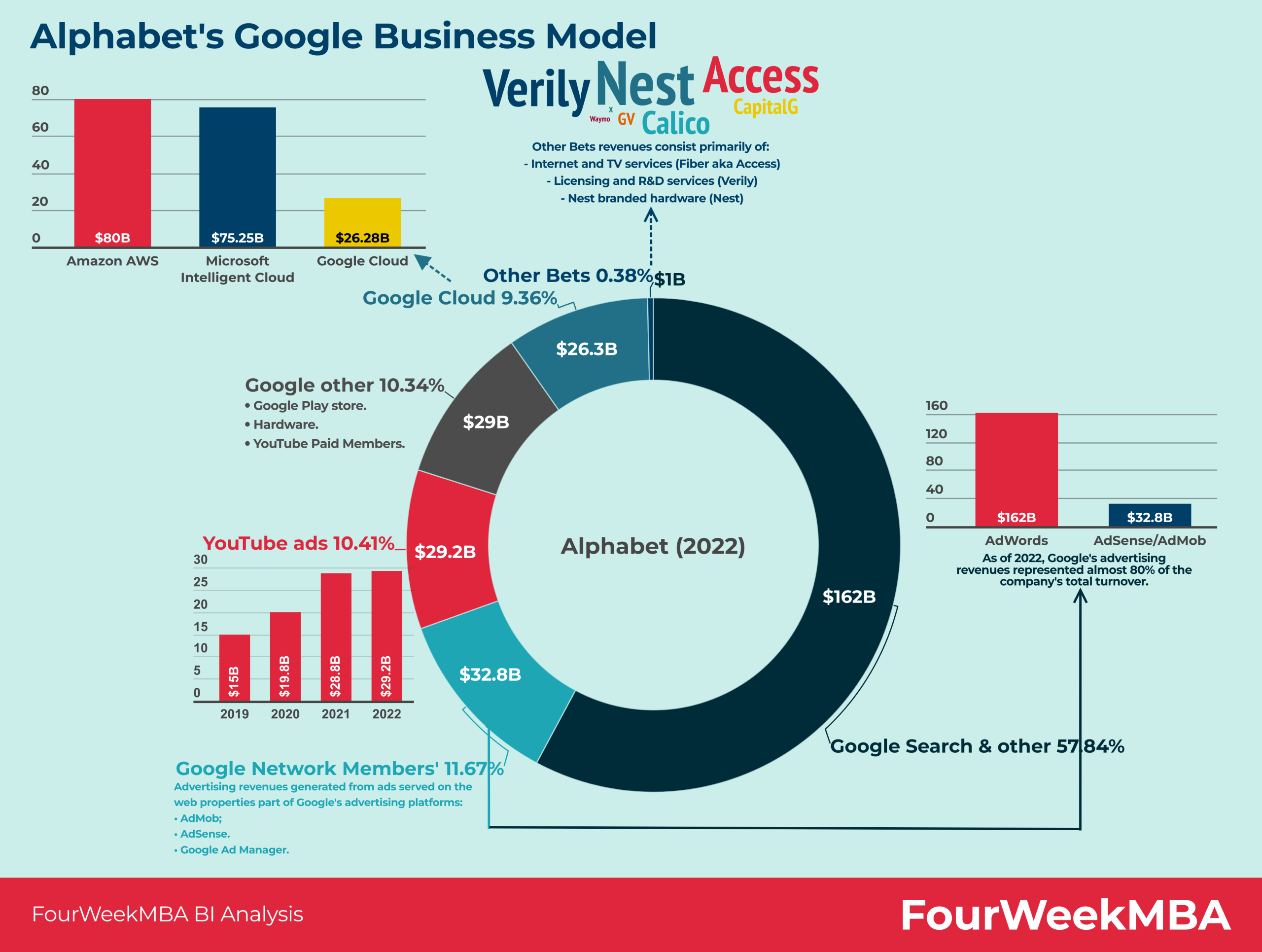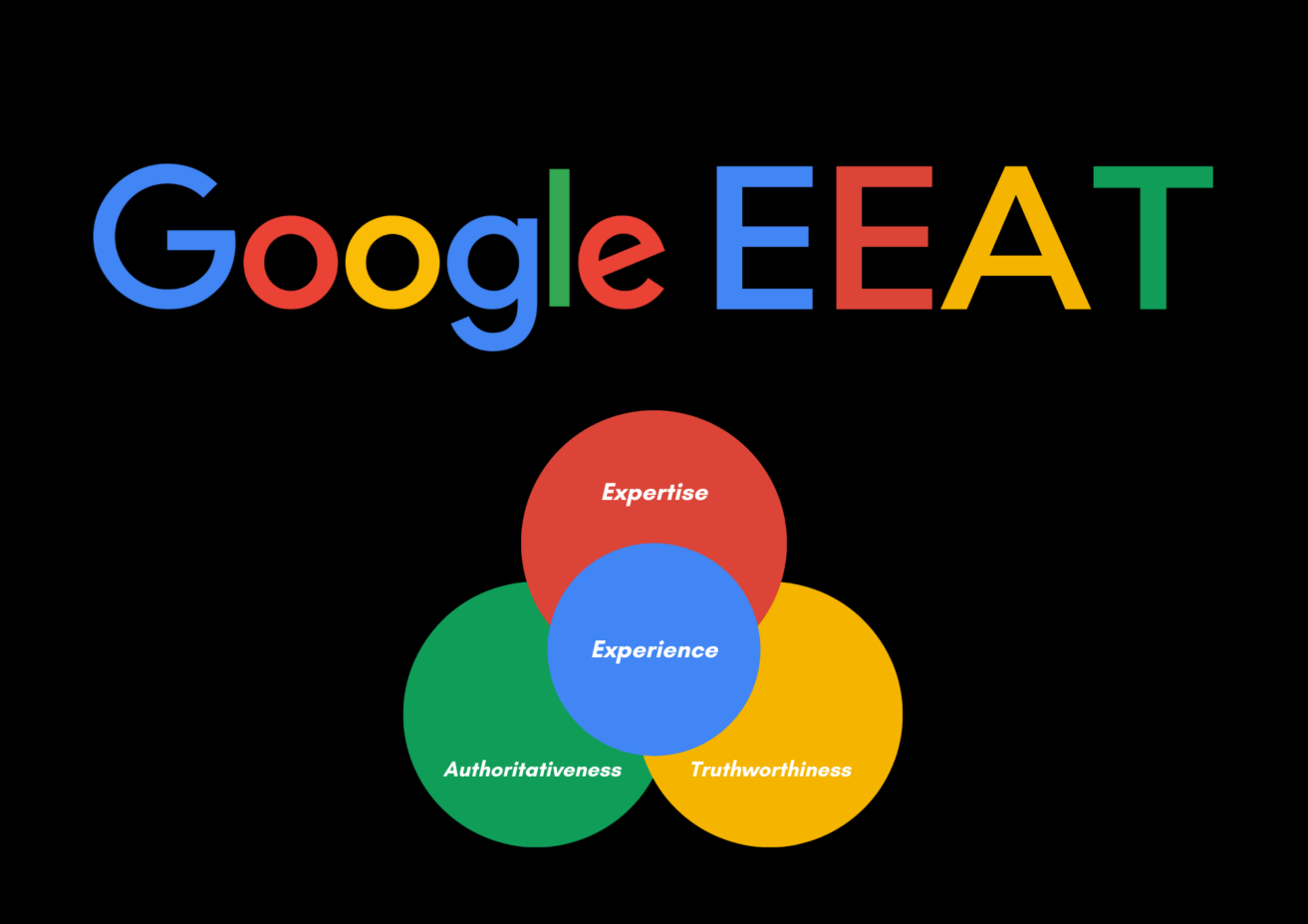18 min to read
Google and Bing Ranking Factors in 2024

Google and Bing Ranking Factors
97% of individuals learn about local businesses primarily through online channels, a stark shift in consumer discovery patterns. Nearly 70% (68%) of all online experiences start with a search engine, highlighting the pivotal role of search in the digital world (BrightEdge). This highlights the pivotal role of search engines, especially Google and Bing in helping users find the right information, significantly influencing local business visibility and customer engagement.
Proficiency with Google's ranking factors hence becomes crucial for CEOs and CMOs because it directly impacts your website's visibility in search engine results, which in turn affects your online presence and business success. Understanding these factors enables you to optimize your website to rank higher, attract more traffic, and potentially increase conversions and sales.
Example: Let's consider a company that sells eco-friendly kitchenware. If their website is not optimized for Google's ranking factors, it might appear on the third or fourth page of search results when potential customers search for "eco-friendly kitchen products." Since most users rarely go past the first page of search results, the company loses significant visibility and potential sales.
CodeDesign is a leading digital marketing agency ranked #1 in Lisbon, Portugal. You could work with us to accelerate your business growth.
Is SEO still significant in 2024?
A HubSpot marketing study revealed that 72% of consumers who perform a local search visit a store within a 5-mile radius. Nearly 70% (68%) of all online experiences start with a search engine, highlighting the pivotal role of search in the digital world (BrightEdge). However, the chances of users exploring beyond the first page of Google results are slim, with only about 0.63% venturing onto the second page (Backlinko). This underscores the importance of ranking high on the first page.
Organic searches are the main source of website traffic, accounting for over half (53.3%) of it (BrightEdge). Google dominates the global search landscape significantly, with nearly 93% of all internet traffic generated from Google Search, Google Images, and Google Maps (SparkToro).
Why does Google really care about search market share and giving the best experience to its customers?

Alphabet revenue breakdown 2022
Image Credits: FourWeekMBA
Let's break down Google’s revenue for 2022 to understand the significance:
Revenue Breakdown:
Google Cloud: 9.04% ($26.26 billion)
Apps, Hardware, and Content: 10.04% ($29.06 billion)
YouTube Ads: 10.05% ($29.24 billion)
Google Network Ads: 11.07% ($32.78 billion)
Ads (Google Search & Others): 58% ($162.45 billion)
The most striking figure is that search ads (including Google Search and others) account for 58% of Google's revenue, totaling $162.45 billion. This is a significant majority, indicating that search advertising is the primary revenue generator for Google.
When you compare this with other segments like Google Cloud, apps, hardware, content, and even YouTube ads, it's evident that none of these segments individually come close to the revenue generated from search ads. Even combined, these segments make up less than half of the revenue from search ads.
From this data, we can understand the critical role of search advertising in Google's business model. It's not just a major revenue stream but is the backbone of their financial health. Now obviously, the substantial revenue from search ads also reflects Google's dominant market share in the search engine market. And, if we ask this simple question to ourselves why do we all generally prefer Google over all the other engines, it is because of the better quality of results.
See, this fine line explains what Google wants. Google has to give their users the best experience of search, so that they get what they want, and next time, they come back again to it. This loop will bring more advertisers and bring more revenue.
So, if I had to tell you in one sentence on how you climb up the search ranks, then it will be to create content or landing pages that solve the pain points of the searcher. If the searcher is satisfied with your page, you are bringing a good experience, and ultimately these signals will help Google understand that your page is important and it’ll ultimately climb up the ladder.
But, like you must have anticipated, it’s not as simple as that. There are a lot of factors that work alongside that need your attention. Let’s talk about each of them in detail.
Quality content

Google quality content
Quality Content that is primarily created to solve the searcher’s query with additional insights and a personal touch is one of the most important SEO strategies that we could talk about. See, the purpose behind the existence of search engines is to organize the world's information and make it universally accessible and useful.
So, the last thing Google would want is to serve content that doesn’t match the intent behind their search. So, your content must closely align with the search intent of your target audience. It should answer questions, solve problems, or provide information that users are actively seeking. And, what do you mean by good content? It should be rich in information, providing depth, insights, and value that isn’t readily available elsewhere. The information should be factually correct, reliable, and trustworthy. Also, there should be regular updates to ensure it is current and relevant.
Other technical aspects of the page that should be given importance:
Readability: Content should be easy to read and understand, with a clear structure and layout.
Structured Data: Implement structured data (schema markup) to help search engines understand and categorize your content more effectively. This can also lead to enhanced search results, like rich snippets.
Error Handling: Properly manage 404 errors and ensure that all links lead to the correct pages, enhancing user experience and site reliability.
E-E-A-T

Google E-E-A-T
E-E-A-T stands for Experience, Expertise, Authoritativeness, and Trustworthiness. This is a fundamental aspect in Google's guidelines for assessing the quality of web content. Let's break down each component:
Experience: This is a relatively new addition to Google's evaluation criteria. It emphasizes the value of personal experience in creating content. For example, when we are talking about strategies and tips about how to handle business, then it makes sense to get advice from someone who already knows what he is talking about. Can you imagine a novice talking about something they have never done before?
Expertise: This refers to the level of knowledge or skill in a specific area. Google looks for content created by individuals who have demonstrable expertise in their field. This doesn't necessarily mean formal qualifications; a deep understanding and knowledge of a topic, demonstrated through content, also counts as expertise.
Authoritativeness: This is about the credibility of the creator of the content, the content itself, and the website where it appears. Authoritativeness is built through external indicators like backlinks from reputable sites, references from authoritative individuals or entities in the field, and recognition by peers and audiences.
Trustworthiness: This aspect focuses on the reliability and truthfulness of the content, the creator, and the website. It involves ensuring accuracy, transparency about authorship, clear distinction between sponsored and non-sponsored content, and having a good reputation in the field.
How do you improve your position with this E-E-A-T update?
Showcase Personal Experiences: Share real-life experiences related to your products or services. This can increase the relatability and authenticity of your content.
Highlight Expertise: Make the expertise of content creators known. Include author bios, credentials, and practical experiences.
Build Authoritativeness: Gain recognition through networking, guest blogging on reputable sites, and accumulating positive reviews and testimonials.
Ensure Trustworthiness: Be transparent, provide accurate information, cite sources, and maintain a consistent, positive reputation online.
Backlinks and its importance
It's about building a link profile that signals to Google that your site is a valuable, credible, and authoritative source within your niche. It is important that you prioritize building relationships with reputable websites, creating valuable content that naturally attracts links, and monitoring their backlink profile to ensure it aligns with these best practices.
- Backlinks from older domains are often more influential than those from newer ones, suggesting established trust and authority.
- A diverse range of referring domains is more beneficial than many links from a few sources, indicating widespread recognition and credibility.
- Links coming from a variety of IP addresses reflect a broader acceptance across different networks and hosts.
- Multiple links from the same domain, across different pages, can reinforce the trustworthiness and relevance of your content.
- While less crucial than before, appropriately used keyword-rich anchor text in backlinks can still provide a relevancy boost.
- Links from high-authority pages and domains lend significant credibility and trust to your site.
- A natural link profile with a variety of link types is preferred over a profile dominated by one link type.
- Links embedded within relevant content hold more weight than those placed in less prominent areas of a webpage.
- Links positioned early in content or within the main body are generally more impactful.
- Links from sites and pages closely related to your topic are more effective, signaling stronger endorsement within your niche.
- The speed at which a site gains or loses backlinks can impact its perceived popularity and relevance.
- The content quality of the linking page matters, as high-quality content suggests a credible and valuable link.
User experience and its importance in today’s time
User Experience (UX) refers to the overall experience a user has when they interact with your website. It covers everything from how easy it is to navigate the site to how quickly pages load and how relevant the content is to the user’s needs.
See, good UX is crucial because it directly impacts user satisfaction, engagement, and retention. If your website has excellent UX, then it is more likely to have lower bounce rates, higher time on site, and better conversion rates.
- Intuitive and straightforward navigation is key. Users should find what they're looking for with ease.
- Websites should be accessible to all users, including those with disabilities, ensuring compliance with ADA (Americans with Disabilities Act) standards.
- Fast-loading pages are essential. Users often abandon sites that take too long to load, which can negatively impact search rankings.
- High-quality, relevant content that meets the user’s intent is crucial. Content should be well-organized, easy to read, and valuable to the audience.
- An aesthetically pleasing design can significantly enhance user experience. It should align with the brand and be consistent throughout the site.
Search engines like Google and Bing increasingly consider UX factors when ranking websites. A site that provides a positive user experience is more likely to rank higher in search results. Metrics like click-through rate (CTR), time on site, and bounce rate, which are influenced by UX, play a role in SEO.
Good UX leads to higher customer satisfaction, increased trust, and brand loyalty. This directly impacts the bottom line through higher conversion rates and repeat business.
One of the misconceptions that we’ll like to clear is that UX is not a one-time task but a continuous process. You need to regularly gather user feedback, analyze behavior through tools like heatmaps, and stay updated with UX trends.
How to ensure Bing understands and indexes your page?

Bing understands and indexes your page
Here is what Bing says in their guidelines:
To ensure Bing effectively understands and indexes your website's pages, it's essential to focus on creating content that is user-centric, unique, and well-structured. Here's an expanded view of key strategies:
Content Creation
Rich, Engaging Content: Prioritize creating content that is valuable and engaging for users, not just optimized for search engines. Bing favors websites with substantial, informative content.
Avoid Thin Content: Websites with minimal content, excessive ads, affiliate links, or that redirect users quickly, can be negatively impacted in Bing rankings.
Unique Content: Ensure the content on your site is unique. Avoid repurposing content from other sources without proper attribution using canonical or alternate tags.
Multimedia Usage
Images and Videos: Incorporate unique and relevant multimedia elements. Bing can extract valuable information from images, captions, and structured data.
Optimization: Optimize multimedia elements for faster load times, which enhances user experience and page performance.
Accessibility: Use alt text for images and subtitles for videos, enhancing accessibility and providing text-based context to multimedia content.
SafeSearch and Adult Content
SafeSearch Settings: Use meta tags to categorize adult content correctly. Group adult-only images in a specific folder to help Bing categorize content appropriately for SafeSearch.
Discoverability
Avoid Flash and JavaScript for Core Content: Essential content should not be embedded in Flash or heavy JavaScript as it hinders crawler discoverability.
HTML Tags and Structure: Utilize HTML tags effectively to structure your content. This includes using title tags, meta descriptions, header tags, and alt attributes accurately.
FAQS - Frequently Asked Questions
What makes SEO significant in 2024?
SEO remains a cornerstone of digital marketing strategy in 2024 due to its unparalleled efficiency in enhancing visibility and driving organic traffic to websites. As the digital landscape becomes increasingly saturated, SEO offers a cost-effective solution for brands to distinguish themselves and secure a competitive edge. This importance is magnified by evolving search engine algorithms that prioritize user experience, making it essential for businesses to optimize their online content and technical website aspects to meet these criteria. For instance, Codedesign clients have seen significant improvements in their online presence by adopting advanced SEO strategies, leading to increased engagement and conversion rates.
How does Google's revenue model influence its search algorithm?
Google's revenue model, predominantly based on advertising through its Google Ads platform, significantly influences its search algorithm. The model encourages the search engine to maintain a delicate balance between providing optimal user experience and maximizing advertising revenue. This balance ensures that while organic search results are primarily determined by relevance and quality, paid advertisements are also prominently displayed. Google updates its algorithm regularly to improve user experience, indirectly encouraging advertisers to optimize their ads for quality and relevance to compete effectively. This dynamic fosters an environment where both organic and paid search strategies must be highly targeted and user-focused to succeed.
What defines "quality content" for Google and Bing in 2024?
In 2024, "quality content" for Google and Bing is defined by its ability to satisfy user intent, provide comprehensive and accurate information, and deliver an enjoyable user experience. This includes content that is well-researched, expertly written, and reflects the depth of understanding of the subject matter. Search engines are increasingly sophisticated, using natural language processing and machine learning to evaluate the context, relevance, and authority of content. Additionally, factors such as the content's structure, readability, and the inclusion of multimedia elements contribute to its perceived quality. Websites that consistently produce such content are more likely to rank well.
Can you explain the importance of E-E-A-T in Google's ranking factors?
E-E-A-T, standing for Experience, Expertise, Authoritativeness, and Trustworthiness, plays a pivotal role in Google's ranking factors as of 2024. This updated emphasis on "Experience" alongside traditional E-A-T criteria reflects Google's commitment to prioritizing content that not only comes from credible sources but also provides practical, real-world value to users. Websites and content creators demonstrating firsthand experience and deep knowledge in their respective fields are rewarded with higher search rankings. This focus ensures that users are presented with content that is not only trustworthy and authoritative but also highly relevant and applicable to their needs.
How can websites improve their ranking with the E-E-A-T update?
Websites can enhance their ranking under the E-E-A-T update by focusing on demonstrating real-world experience and expertise in their content. This involves creating in-depth content that showcases practical knowledge, authored by credible experts in the field. Additionally, websites should work on building their authority through quality backlinks and positive user engagement, while also ensuring that all information is accurate and trustworthy. Incorporating customer reviews, case studies, and real-life examples can further bolster a site's E-E-A-T profile. Regularly updating content to reflect the latest industry developments and maintaining a secure, user-friendly website are also crucial.
What role do backlinks play in search engine rankings in 2024?
In 2024, backlinks continue to play a vital role in search engine rankings as they serve as a vote of confidence from one site to another, indicating the quality and relevance of the content. Search engines, including Google and Bing, use backlinks as a key ranking signal to assess a website's authority and trustworthiness. However, the focus has shifted towards the quality rather than the quantity of backlinks, with links from reputable, relevant sites having a greater impact on rankings. Strategic link-building efforts, such as guest blogging, partnerships, and producing shareable content, remain essential for improving a website's backlink profile and, consequently, its search engine visibility.
Why is user experience (UX) crucial for website ranking?
User experience (UX) has become crucial for website ranking in 2024 as search engines increasingly prioritize sites that offer a seamless, engaging, and efficient experience to users. Factors such as site speed, mobile-friendliness, easy navigation, and content readability directly influence a website's ability to retain visitors and satisfy their search intent. A positive UX not only improves organic search rankings but also boosts conversion rates and customer loyalty. Websites that invest in UX design demonstrate to search engines their commitment to providing value, thereby enhancing their visibility and competitiveness in search results.
How can you ensure Bing effectively indexes your website?
Ensuring Bing effectively indexes your website involves optimizing your site's technical aspects and content to meet Bing's specific indexing guidelines. This includes using Bing Webmaster Tools to submit your site and sitemaps, which facilitates easier discovery and indexing of your pages. Prioritizing high-quality, original content, improving site speed and mobile responsiveness, and using structured data markup to help Bing understand your content better are also key strategies. Regularly monitoring your site's performance through Bing Webmaster Tools and addressing any crawl errors or indexing issues promptly will further ensure effective indexing.
What are the key strategies for creating content that ranks well on Bing?
Creating content that ranks well on Bing involves several key strategies focused on quality, relevance, and user engagement. Firstly, conduct thorough keyword research to understand what your audience is searching for and tailor your content to meet those needs. Bing places a high value on originality and depth of content, so ensure your articles provide unique insights and comprehensive information. Structuring your content with clear headings, subheadings, and utilizing multimedia elements like images and videos can enhance user engagement. Additionally, optimizing for Bing's SEO factors, such as metadata and backlinks from reputable sites, will improve your content's visibility on the platform.
How do multimedia elements affect my website's ranking on search engines?
Multimedia elements, including images, videos, and infographics, can significantly affect your website's ranking on search engines by improving user engagement, reducing bounce rates, and enhancing the overall user experience. When these elements are properly optimized with relevant keywords in file names and alt text, they can also contribute to your site's SEO by making your content more discoverable in image and video search results. Furthermore, engaging multimedia content is more likely to be shared and linked to, increasing your site's backlink profile and visibility. However, it's essential to ensure that multimedia elements do not negatively impact your site's loading speed, as this can adversely affect rankings.

Add comment ×